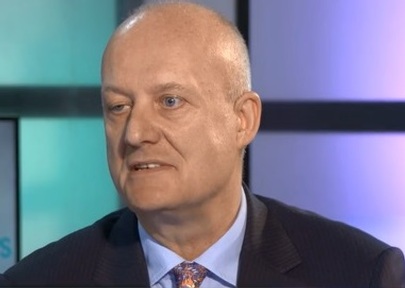Deal or no deal, Matt Hancock says EU workers' qualifications will be recognised after Brexit
With just days to go before the UK is scheduled to leave the EU on 12 April, Health Secretary Matt Hancock has announced EU workers, including nurses, will have their qualifications and registration recognised in the UK, even if Britain exits the EU without a deal.
 The health secretary said recognition post Brexit, is possible as a result of legislation introduced by the Department of Health and Social Care.
The health secretary said recognition post Brexit, is possible as a result of legislation introduced by the Department of Health and Social Care.
The changes will mean health and social care workers with professional qualifications from EU institutions can continue working in Britain's NHS and social care sector.
Employment contracts will not need to be changed if the UK leaves the EU without a deal and staff won’t have to re-apply for their current jobs to work after ‘Brexit day’.
The move means up to 63,000 NHS staff and 104,000 social care workers who qualified in the EU will have their training and experience accepted by all regulatory bodies for the health and social care sectors. Matt Hancock said: “My message to EU staff is clear – we all want you to feel valued and stay in the UK.
“My priority is to make sure high standards are maintained across the healthcare system and patients continue to receive the high-quality care they deserve – this legislation helps ensure that will continue to be the case.”
Care England boss calls it 'incomprehensible' recognition took so long
Responding to the announcement, Care England's chief executive Martin Green branded it ‘incomprehensible’ that the health secretary waited so long to recognises EU workers’ qualifications, with just days to go before the UK’s scheduled exit from the EU.
Martin Green, whose organisation represents care homes, said: “I welcome the Secretary of State‘s assurance that EU workers will have their qualifications and registration recognised after Brexit
“That said, it seems incomprehensible that two and a half years after the referendum the government is only now issuing these assurances a few days before Brexit.”
The regulatory bodies which will recognise EU workers training and experience post Brexit, include the Nursing and Midwifery Council, the General Medical Council, General Pharmaceutical Council; General Dental Council and the Health and Care Professions Council.

The government is also encouraging EU workers to apply to the EU Settlement Scheme which re-opened on 30 March.
The scheme is free and those who have lived in the UK for five years or longer can apply for ‘settled status’, whilst those who have lived in the UK for under five years can apply for ‘pre-settled status’.
Danny Mortimer, chief executive of NHS Employers and chair of the Cavendish Coalition of social care and health organisations said: “We have been clear that we must continue to embrace the vital contribution of our talented colleagues from overseas in caring for our patients and communities.
“We very much welcome the news, as will employers and staff, that the UK will recognise the qualifications of EU professionals in a no-deal situation.
“We would hope for similar confirmation of recognition for those with UK qualifications working in the EU.”
Ruth May, chief nursing officer for England said: “Our EU staff make an incredible contribution to the NHS, touching the lives of patients and families as doctors, nurses, midwives, care staff, allied health professionals, porters and a whole host of other professions.
“I therefore welcome this news and hope that it goes some way to reassure EU staff that your expertise and skills are valued and that you matter to us.”
Latest News
 29-Jul-24
Dementia Bus gives carehome.co.uk staff insight into life with dementia
29-Jul-24
Dementia Bus gives carehome.co.uk staff insight into life with dementia
 01-Mar-24
Find out the top care homes in 2024
01-Mar-24
Find out the top care homes in 2024
 21-Mar-23
UK's top care homes in 2023 revealed
21-Mar-23
UK's top care homes in 2023 revealed
 03-Jan-23
carehome.co.uk launches free care helpline
03-Jan-23
carehome.co.uk launches free care helpline
 13-Dec-22
5 mins with Emily Whitehurst, chief operating officer for Constantia Healthcare
13-Dec-22
5 mins with Emily Whitehurst, chief operating officer for Constantia Healthcare